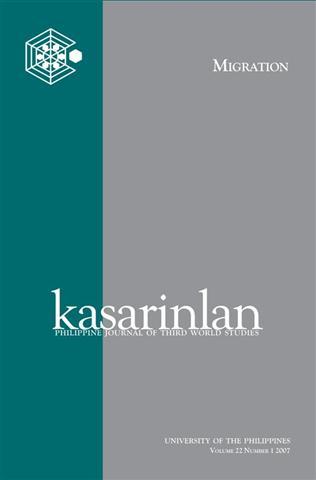Gender, Migration, and the State: Filipino Women and Reproductive Labor in the United States
Abstract
This paper examines the relationship between the experiences of immigrant Filipino women in the United States and state practices managing immigration and immigrant labor. The main question that I pose here is: What are some of the effects that state policies have on the experience of Filipino caregivers and domestic workers in the United States? My tentative argument is that increasingly restrictive immigration policies and gaps in employment laws facilitate the exploitation and subordination of migrant Filipina domestic workers in the United States. Employment law often does not include caregivers and domestic workers in its protections, and immigration policy in the United States does not have any program regulating their entry and work. It is the intersection of both legal bodies which triggers situations of what I call here legalized trafficking and normalization of irregularity.
How to Cite
EZQUERRA, Sandra E..
Gender, Migration, and the State: Filipino Women and Reproductive Labor in the United States.
Kasarinlan: Philippine Journal of Third World Studies, [S.l.], v. 22, n. 1, p. 117-144, dec. 2007.
ISSN 2012-080X.
Available at: <https://journals.upd.edu.ph/index.php/kasarinlan/article/view/365>. Date accessed: 06 sep. 2025.
Section
Articles
Keywords
female migration; reproductive labor; gender; immigration policy; employment policy; United States; Filipino domestic workers
By submitting a manuscript, the authors agree that the exclusive rights to reproduce and distribute the article have been given to the Third World Studies Center.



